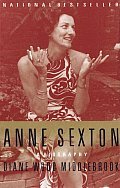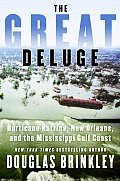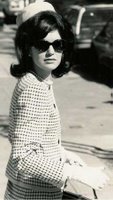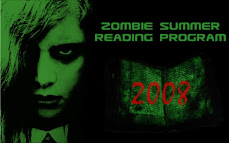Next in a direct line from Hammett is Raymond Chandler. Chandler grabbed the baton from Hammett, doused it in kerosene, struck a match, and lit his cigarettes off of it. The Faulkner to Hammett's Hemingway, Chandler writes like Tom Waits sings and in reading his stories I often get lost, focusing on the words and losing track of the plot.*
As far as his prose goes, his trademark was the similes that later hacks would ape as they tried to write hard-boiled:
"Alcohol is like love. The first kiss is magic, the second is intimate, the third is routine. After that you take the girl's clothes off."
"The old man nodded, as if his neck was afraid of the weight of his head."
His most notable creation is, of course, Philip Marlowe. Chandler took the template laid out by Hammett and added a considerable depth of character to "the detective," who is more fully formed in Marlowe than in Nick Charles, the Op, or even (arguably) Sam Spade.
Marlowe is the quintessential noir gumshoe, all hard lines, hard knocks, hard knuckles, and a soft touch for the dames, the innocent, and the dead. An ex-cop, Marlowe is more likely than any of Hammett's creations to end up in serious trouble with the law for witholding evidence, either to protect a client or so the bulls don't muck up the case. He also drinks a bit, often on the job, mostly because he finds the whole "sifting through the mean and small details of human fallibility" thing a little depressing.**
All of this sounds pretty standard for a shamus, but that's mainly because it's become so deeply ingrained in the genre. And Marlowe's a cynic, sure, but he's not (100%) hopeless about it. He knows who he is and what he does, and he knows what the nasty corners of the world are like. Then he goes ahead, trudges through the muck, and solves the case whether he's been asked to or not, because somebody has to do it. He does it because deep down he's a moral and honorable guy who, once he takes on a case, pursues it to the end, usually at great physical and psychic cost to himself. Ever the philosopher, he sums it up at the end of a particularly nasty case:
"What did it matter where you lay once you were dead? In a dirty sump or in a marble tower on top of a high hill. You were dead, you were sleeping the big sleep, you were not bothered by things like that. Oil and water were the same as wind and air to you. You just slept the big sleep, not caring about the nastiness of how you died or where you fell. Me, I was part of the nastiness now."
As far as I'm concerned, you can't go wrong by starting off with
The Long Goodbye.

In it, Marlowe (older now than in
Farewell, My Lovely or
The Big Sleep)does a drunk a nice turn and then gets drawn into a brutal murder case that leads from the mansions of Los Angeles to flophouses in Mexico, stopping off at a writer's colony and a number of clean, well lit places where they make a mean gimlet. As in the last post, I'm leery of revealing much more of the plot; instead, I'll just say the following and leave you with another quote. (It's hard to resist when the language is put together like it is in this one.)
At every turn, Marlowe does the right thing and gets nothing but trouble for it. It's part character study, part detective story, and part meditation on the nature of a certain kind of male friendship. When it came out, the NY Times described it as finding Marlowe more on the search for "some evidence of truth or humanity" than for a criminal.
And though the writing and the protagonist are here less fiery than in his earlier works, we still get nuggets like:
"She opened a mouth like a firebucket and laughed. That terminated my interest in her. I couldn't hear the laugh, but the hole in her face when she unzippered her teeth was all I needed."
If you're a fan of anti-heroes, particularly those that are less Han Solo than Mal Renoylds, you will dig this book.
-----------------------------
* When Howard Hawks and Humphrey Bogart were filming Chandler's
The Big Sleep, they called him up to ask if a certain character had suicided or been murdered, and if it was the latter, who had killed him. Chandler's response was something along the lines of "Hell if I know." Having read the book, I think Chandler's inability to answer had more to do with his prodigous intake of Scotch than poor plotting; Marlowe figures it out.
** That, or he's been hit in the head a lot and needs a quick jolt. Ah, noir medicine: Pistol-whipped? Scotch. Possible concussion? Scotch. Fractured skull? Scotch. Drugged scotch? Coffee. New - well,
only - friend turns out to be a bit of a bastard and leaves you hanging to answer for a murder rap? Gin. Scotch, after all, is for head injuries.
 I swear, I won't make a habit of this, but I was kinda proud of the way this review turned out. Plus, if I hadn't already written about it somewhere else, it's exactly the kind of book I'd write about here. Such a good story, and nine kinds of fun.
I swear, I won't make a habit of this, but I was kinda proud of the way this review turned out. Plus, if I hadn't already written about it somewhere else, it's exactly the kind of book I'd write about here. Such a good story, and nine kinds of fun.







